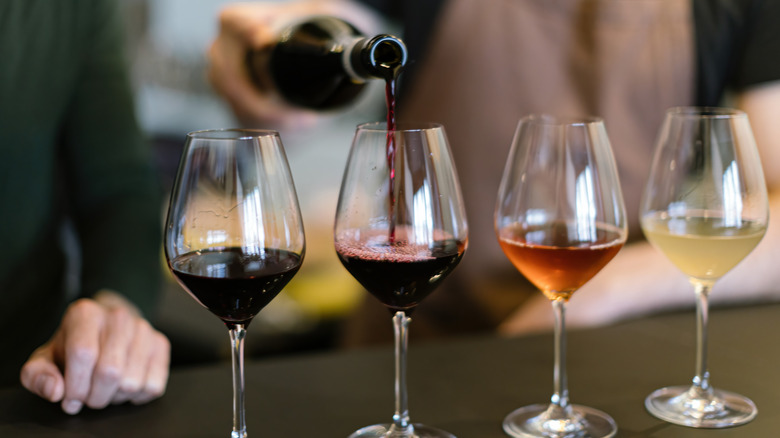A Tasting Expert's Top Tip To Expand Your Palate
We may receive a commission on purchases made from links.
When we first learn about taste, we are taught to evaluate food through the big four: salty, sweet, sour, and bitter. As we mature, we discover more detailed descriptions for flavors, such as floral and umami. For some, expanding their tasting palate is a lifelong journey. Food journalist and Advanced Cicerone (which basically means beer-tasting expert) Mandy Naglich believes that everyone can improve their palate. In her new book "How to Taste: A Guide to Discovering and Savoring Life," Naglich takes readers on a reflective tasting journey to learn how to savor meals and receive new insights from what they are eating and drinking.
Naglich emphasizes tasting with focus. When people take a pause while eating and focus only on what is in their mouth and what flavors are coming through, they start to train their taste receptors to pick up on the different layers of flavor. Naglich recommends holding off conversation during eating and drinking until you've had your first bite or sip. This allows the taster to give full attention to the flavors with minimal distractions.
"Taking a moment to appreciate the flavor of an apple will make it easier to identify apple aroma in a wine or rum," Naglich says in her book. Becoming familiar with the flavors of different ingredients and dishes makes it easier to recall the knowledge later down the line as needed. She explains on her website that refining your palate can create stronger tasting experiences and even make you feel more intelligent.
Practices to incorporate into your daily tasting experiences
Mandy Naglich says that asking yourself to compare questions while you taste is a simple way to start expanding your flavor notes vocabulary. These don't have to be super specific and detailed questions to start, they are meant more to get yourself thinking and really evaluating the flavors in your mouth. Think of this as a creative activity and try to have fun finding different notes and flavors in everything from coffee to wine and all kinds of foods. "Simply asking yourself, 'Does this taste more like fruit or spices?' when sipping tequila or wine forces your brain to create connections between flavors," says Naglich.
Naglich goes on to explain that when we start simple and find these basic connections, we can continue to challenge our tasting palate to be more and more specific. Soon, you'll be able to tell if it's a specific kind of orange you're tasting or the exact spices used in a dish. The easiest way to expand your tasting palate is to just keep tasting new food and finding new flavors to incorporate into your dishes. Mandy Naglich's book offers more activities and thought practices to keep evolving your tasting palate and is available now.

